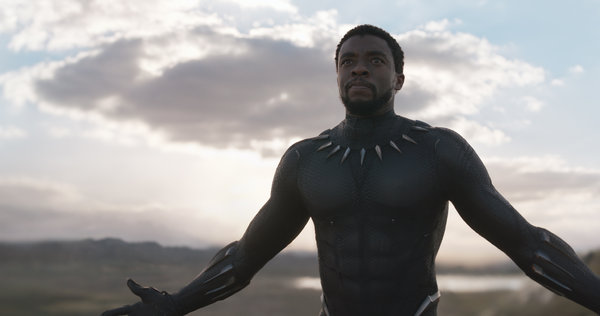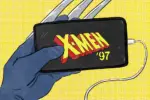Woke films can be defined as those that make you think deeply about the self, mankind, technology, race or society. These kinds of films are the ones that stay with you long after viewing them and maybe even influence decisions you make for the future. The following list includes films that touch on the topics mentioned and more.
“12 Years a Slave”
The true story of “12 Years a Slave” follows the life of Solomon Northup who was a free black man in 1853 living in Washington D.C. He was kidnapped and sold into slavery, which separated him from his wife and children for 12 years.
The film sheds a light on the brutal reality that slaves used to face in America. The film is graphic and contains scenes of physical abuse from lashings, torture and emotional abuse since Northup is separated from his family.
“500 Days of Summer”
The term “hopeless romantic” is given to someone because they view life through a rose-colored lens that is too idealistic, especially in regards to relationships.
Tom is a hopeless romantic who is a greeting-card writer and views his relationship with Summer, a girl who dumps him for no reason, through an idealistic lens. The film recounts the 500 days prior to the break-up, as Tom tries to figure out what went wrong and touches on the adoration of romance as an answer to life’s problems.
“Her”
Theodore makes a living by writing personal letters for other people. He’s devastated when his marriage ends and tries to distract himself by using a new piece of technology that is supposed to develop into a unique entity.
This is when Theodore meets “Samantha,” an intelligent operating system. The two of them initiate a friendship that slowly turns into a relationship and the film sets out to explore mankind’s relationship with technology and the potential futures that may exist between man and machine.
“Selma”
“Selma” is a biographical film about Martin Luther King Jr. — that alone should justify why it makes the list of most woke films, but it’s best to unpack this film a little more.
The story follows the events of the Selma march where MLK led a group of protesters from Selma to Montgomery, Alabama, who wanted to secure voting rights for African-Americans. MLK’s group of civil-rights advocates were met with violent opposition from police forces and white supremacy groups who didn’t want them to have equal rights in Alabama.
“Ex-Machina”
“Ex-Machina” is another film that touches on the relationship between man and machine. The film follows Caleb Smith, a programmer at a large technology company, who wins a company contest that rewards him with a week with the company’s genius CEO.
When he arrives at the estate, Caleb meets the intriguing Nathan Bateman, who decides to include Caleb in his tests with artificial intelligence, which is when Caleb meets Ava.
Ava is a beautiful android who turns out to be smarter than any other machine in existence. She is self-aware and capable of understanding human emotion and thought processes, which eventually creates a problem for Nathan and Caleb.
“Arrival”
Adapted from the short story “Story of Your Life” by Ted Chiang, “Arrival” dives into a very important question: What would happen if aliens suddenly landed all over the planet? This is a question that has been asked by scientists and average Joes over the ages, and “Arrival” seeks to provide one possible answer on film.
Louise Banks, a linguistics expert, leads a team comprised of American military personnel into an alien spacecraft to make first contact with mysterious extraterrestrial life forms. Her role is to decode the alien language in order to figure out why they are on Earth.
Tensions rise as foreign leaders, who also have alien space crafts in their territories, prepare to take military action against the celestial invaders, even though the aliens have yet to show signs of being a threat.
“Source Code”
“Source Code” follows Colter Stevens, a helicopter pilot who is tasked with a top-secret mission to relive the last moments of the life of Sean Fentress; new, classified military technology is what allows Stevens to do this.
Fentress’ life ended in an explosion on a commuter train caused by terrorist and the government’s main goal is to use Stevens to find out the identity of the terrorist in order to prevent further attacks. The film toys with the idea that there is advanced technology out there that isn’t in the hands of the common folk and asks how that advanced technology would be used if it did exist.
“Interstellar”
When the Earth becomes uninhabitable due to multiple environmental catastrophes, ex-NASA pilot Cooper and NASA physicist Professor Brand are tasked with finding new planets that may be capable of hosting life for mankind.
Brand is the mind behind the mission and Cooper, along with his team, are sent out into space with little hope of returning home. In this mind-boggling film, the topics of space and time are put into question like they’ve never been before.
“WALL-E”
Yes, “WALL-E,” the Disney story of a robot tasked with cleaning up a garbage-pile covered Earth, is considered a woke film. The film is enjoyable for children and adults alike, as it depicts how humans have trashed their home planet and have taken refuge on spaceships.
WALL-E unknowingly discovers the key to reviving life on earth, and another, sleeker robot named EVE discovers what WALL-E has done. EVE’s goal is to communicate the discovery to the human spaceships, which sets the story of an incredible journey into space in place.
“Dunkirk”
This film follows the events of the Allied powers’ last stand while cornered on the beaches of Dunkirk. During this battle, the Allied powers were retreating, while at the same time, holding off German forces.
The film seems to emphasize the theme of survival rather than warfare as viewers follow the three storylines of a group of civilians manning their own vessel, a Royal Air Force pilot and a group of soldiers trying to escape the beaches of Dunkirk.
The film portrays the horrors of war and the fight to live as characters face the challenges of gunfire, drowning, burning, confined spaces, capture, desertion and other terrifying dangers; the theme of the unknown soldier plays a key role in this film as well.
“Get Out”
In this horror-thriller directed by Jordan Peele, viewers follow the relationship of Chris and Rose, who have reached the stage in their relationship where Chris gets to meet Rose’s parents. Chris feels that meeting her parents won’t go so well because she is white and he is black.
Upon making it to Rose’s parent’s upstate estate, things start to get really weird. Chris notices that the small number of black people in the neighborhood seem peculiar and when he starts to investigate, things take a turn for the worst. The film uses aspects of horror to create a metaphor about current race relations in the United States.
“Moonlight”
This film deals with the themes of masculinity, family, sexuality and identity, without giving off the feeling of being too heavy-handed. Viewers watch the life of Chiron unfold in three separate chapters and witness his journey into manhood; the film ends up really emphasizing the saying, “It takes a village to raise a child.”
“The Lego Movie”
“The Lego Movie” brings the popular plastic-brick toys to life and is, in a way, a giant advertisement for Lego; however, the message behind the film is woke itself. The film follows the life of Emmet, an average Lego character.
When watching the entertaining situations Emmet and his team of heroes get into while trying to defend the world they live in, one realizes that the message of the story is that even an average person can do extraordinary things.
“Tangerine”
While “Tangerine” was shot completely on an iPhone, the film won several awards as one of the top independent films of 2015. “Tangerine” follows Sin-Dee Rella, who is a transgender prostitute, her friend Alexandra and their lives in Los Angeles.
Rella discovers that her boyfriend/pimp has been cheating on her and the film ultimately shows the rowdy aftermath of that discovery and the experiences of the duo trying to make ends meet.
“Black Panther”
Box office smash hit “Black Panther” brings to life the classic Marvel hero T’Challa aka Black Panther, and illustrates the events that occur after “Captain America: Civil War” which lead to him becoming king of Wakanda. The film gains its wokeness through the philosophical and physical battles between T’Challa and the antagonist, Killmonger.
T’Challa first believes that Wakanda should keep its technology hidden in order to protect it and Killmonger thinks that Wakanda should show its technology to the world and use it to help their people abroad with military warfare. By unpacking the film, the political discourses become more and more evident and create the perfect foundation to discuss morality and race.

















